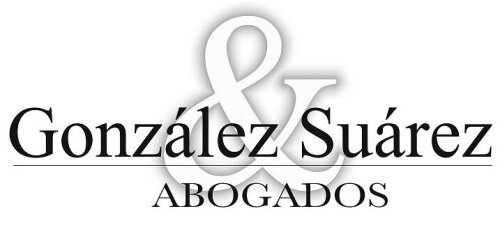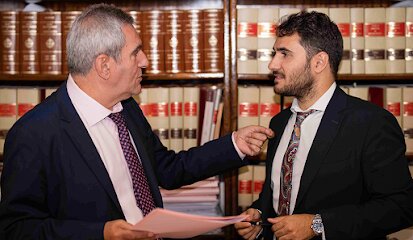Best Defamation Lawyers in Palencia
Share your needs with us, get contacted by law firms.
Free. Takes 2 min.
List of the best lawyers in Palencia, Spain
About Defamation Law in Palencia, Spain
Defamation in Palencia, Spain refers to the act of making false statements about another person or entity that harms their reputation. Spanish law treats defamation as both a civil and a criminal matter, depending on the severity and nature of the act. The aim is to protect individuals and organizations from damaging and untrue allegations, whether those statements are made in writing (libel) or spoken (slander).
In Spain, defamation cases can arise in various contexts including personal disputes, media publications, online statements, and workplace conflicts. The legal system in Palencia, similar to the rest of Spain, upholds the right to honor and reputation, which is safeguarded under the Spanish Constitution and further regulated by the national Penal Code.
Why You May Need a Lawyer
People seek legal help with defamation in Palencia for several reasons. Common situations include:
- Being the victim of false accusations that harm your personal or business reputation
- Receiving threats of a defamation lawsuit for statements made online or in social media
- Facing publication of damaging information by newspapers, websites, or public forums
- Experiencing workplace gossip or rumors that negatively affect your career
- Needing assistance in proving damages as a result of defamation
- Wanting to understand the boundaries between freedom of speech and defamatory speech
- Risking criminal penalties if accused of injurious behavior or slander under Spanish law
A lawyer can help assess whether a case constitutes defamation, gather evidence, initiate or defend lawsuits, negotiate settlements, and represent your interests at every stage of the process.
Local Laws Overview
In Palencia, as throughout Spain, the main legal framework governing defamation includes:
- Spanish Penal Code (Código Penal): Articles 205 to 216 detail crimes of calumny (accusing someone of a crime knowing it is false) and injuria (making statements that harm dignity or reputation).
- Spanish Constitution: Article 18 provides the right to honor and personal reputation, which must be balanced with freedom of expression (Article 20).
- Civil Code: Victims can seek damages for harm caused by defamatory acts, regardless of criminal proceedings.
Defamation can be prosecuted both as a criminal and civil matter in Spain. The seriousness of the statement, its impact, and whether it was made with malicious intent are crucial factors. Offenders may face fines, imprisonment, or orders to retract and rectify the information. The law also distinguishes between statements made privately and those made in public forums, with higher scrutiny and potential penalties for the latter.
Frequently Asked Questions
What is considered defamation in Palencia, Spain?
Defamation refers to making or spreading false statements that harm someone's reputation. In Spain, this includes calumny (false accusation of committing a crime) and injuria (statements damaging to dignity or reputation).
Is defamation a criminal or civil offense in Palencia?
Defamation can be both a criminal and civil offense. Serious cases can lead to criminal prosecution, while most victims can also claim financial compensation through civil courts.
What must be proven to win a defamation case?
You must prove that the statement was false, made to a third party, and caused harm to your reputation. If seeking criminal prosecution, intent to harm or knowledge of falsity must often be shown.
Can opinions be considered defamation?
Generally, personal opinions fall under freedom of expression. However, presenting false information as fact or making malicious statements can be deemed defamatory.
Is there a time limit to file a defamation claim?
Yes. The statute of limitations varies; for criminal cases, it is usually one year from the time of the alleged act. Civil actions also have specific deadlines, so prompt legal advice is important.
How are damages calculated in defamation cases?
Courts consider the extent of reputational harm, any material losses, the public or private nature of the statement, and the spread of the information when calculating damages.
Are online statements subject to defamation laws?
Yes, statements made on social media, forums, and websites can lead to defamation claims under the same legal standards as offline statements.
Can a business sue for defamation?
Businesses and organizations also have the right to protect their reputation. They can initiate defamation proceedings if false statements damage their image or cause economic loss.
What defenses are available against a defamation claim?
Common defenses include proving the statement was true, expressing a legitimate opinion, or showing the statement falls within lawful freedom of expression.
What should I do if I am accused of defamation?
Seek legal advice immediately. Do not attempt to contact the other party directly. A lawyer will help you understand your rights and build a defense.
Additional Resources
For further information or assistance regarding defamation in Palencia, the following may be helpful:
- Ilustre Colegio de Abogados de Palencia (Palencia Bar Association) - Provides lawyer referrals and legal guidance
- Local Civil and Criminal Courts in Palencia - For filing claims and complaints
- Spanish Ministry of Justice - Offers general information on defamation laws
- Mediators and legal aid services in Palencia for those who qualify for assistance
Next Steps
If you believe you are a victim of defamation or have been accused of it in Palencia, consider the following actions:
- Document and preserve all evidence related to the alleged defamatory act
- Consult with a qualified local lawyer who specializes in defamation law
- Avoid publicly discussing the matter until you have sought legal guidance
- Follow your lawyer's instructions regarding potential legal actions or settlement negotiations
- If necessary, file a formal complaint with the police or a lawsuit in court
Taking quick and well-informed steps can help protect your rights and increase the likelihood of a favorable outcome in a defamation case.
Lawzana helps you find the best lawyers and law firms in Palencia through a curated and pre-screened list of qualified legal professionals. Our platform offers rankings and detailed profiles of attorneys and law firms, allowing you to compare based on practice areas, including Defamation, experience, and client feedback.
Each profile includes a description of the firm's areas of practice, client reviews, team members and partners, year of establishment, spoken languages, office locations, contact information, social media presence, and any published articles or resources. Most firms on our platform speak English and are experienced in both local and international legal matters.
Get a quote from top-rated law firms in Palencia, Spain — quickly, securely, and without unnecessary hassle.
Disclaimer:
The information provided on this page is for general informational purposes only and does not constitute legal advice. While we strive to ensure the accuracy and relevance of the content, legal information may change over time, and interpretations of the law can vary. You should always consult with a qualified legal professional for advice specific to your situation.
We disclaim all liability for actions taken or not taken based on the content of this page. If you believe any information is incorrect or outdated, please contact us, and we will review and update it where appropriate.









